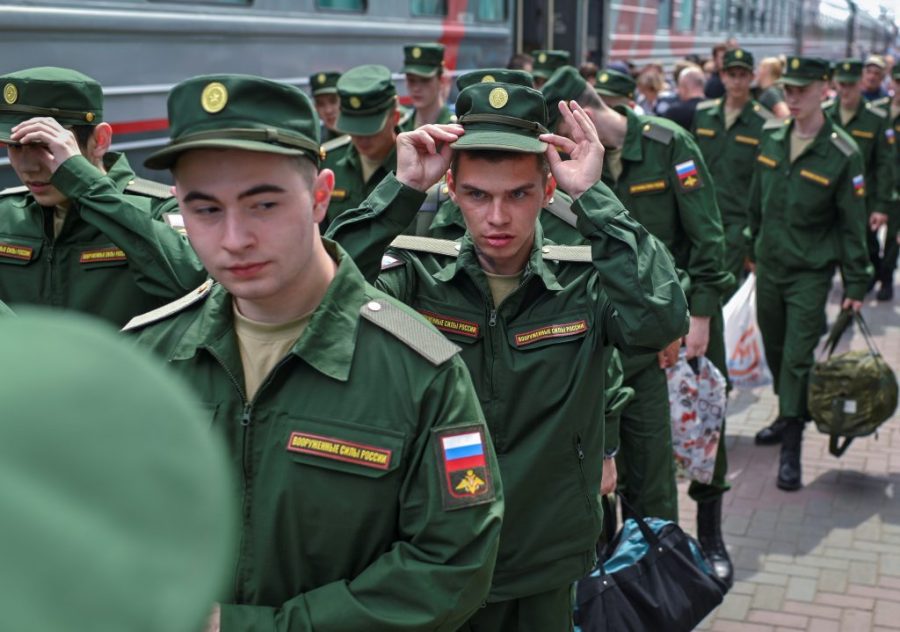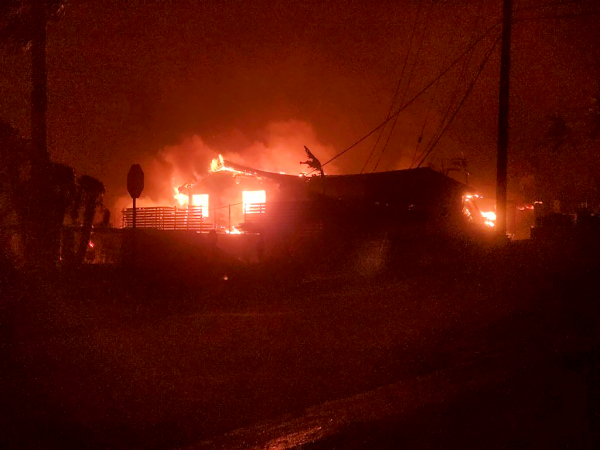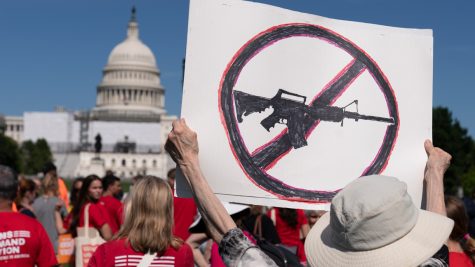Russian Refugee Escapes Mobilization
Russian President Vladimir Putin announced the completion of the “partial mobilization” of civilians on Oct. 31 at a press conference following negotiations with Armenian Prime Minister Nikol Pashinyan and Azerbaijani President Ilham Aliyev in Sochi.
Putin has yet to end the policy of partial mobilization in an official capacity, explaining that a “line has already been set.” The Russian president stated that he will be consulting his legal counsel on the necessity of formally confirming the suspension of mobilization efforts.
Summons for mobilization went into effect on Sep. 21, ushering reservists, veterans, and military specialists to the front lines. Russian Minister of Defense Sergei Shoigu reported reaching the 300,000 mobilized personnel target, concluding the campaign on Oct. 28. Putin stated the total tally to be 318,000 on Nov. 4 during a Red Square address: 49,000 of whom are directly engaged in combat operations.
The additional influx of 18,000 draftees to the initial target of 300,000 could be attributed to Putin’s expansion of the conscript pool to include citizens with outstanding convictions for murder, larceny, robbery, drug trafficking, and other major crimes.
Nevertheless, Putin’s Nov. 4 comments contradict Shoigu’s Oct. 28 enumeration. The Russian Ministry of Defense recorded 41,000 mobilized recruits in combat formations on the date of Shoigu’s count, whereas Putin claimed 49,000, presenting nearly 9,000 additional deployments within the span of a week. On Nov. 7, 50,000 Russian soldiers were deployed to Ukraine according to Putin’s account. Given the range of claims from official sources and ongoing Russian escalation, the precise number of total recruits called up during the first wave of mobilization is difficult to estimate, less so to pinpoint.
As per Putin’s decree signed on Sep. 30, the Russian Ministry of Defense initiated the draft of 120,000 non-reservist citizens between the ages of 18-27 on Nov. 1. Fall summons to eligible citizens will be issued between Nov. 1 to Dec. 31.
Russian authorities assured that incoming conscripts will not be stationed in special military operation zones, stating that military commissariats will be restricted to enlisting volunteers and contractors for military service going forward.
Putin’s desperate attempts at filling vacancies are looking increasingly futile as many prospective soldiers are looking elsewhere for refuge. 700,000 Russians have fled the country within the first two weeks since mobilization began in late September. Between July and September, 9,7 million Russians have traveled abroad — up from 5 million travelers between April and June. While modest in comparison to the 16,1 million border crossings in pre-pandemic 2019, 70% of all departures from Russia were to neighboring or popular destinations, such as Turkiye, Kazakhstan, Georgia, Finland, and the partially recognized Republic of Abkhazia. Kazakh authorities reported a net 200,000 person influx from Russia since Sep. 21, with 20,000 Russians entering the country per day.
“I left because I feared repression at home, as well as border closures in the very near future,” confessed Yuri*, a 26 year-old school teacher from Russia’s Far North.
Russian men fled for a variety of reasons: some out of self-preservation in the face of persecution, some for material desperation following the impact of sanctions, and some out of conscientious objection. “Once mobilization began, a choice loomed over every Russian man: to go fight or to be imprisoned,” commented Yuri.
Choosing neither, Yuri set his sights on Kazakhstan as his sanctuary. “Kazakhstan always seemed like a peaceful country where Russians are treated well,” Yuri explained.
Before he could devise a plan out of Russia, Yuri needed to get close to the Russia-Kazakhstan border. “We didn’t choose the city — we were looking for the cheapest option,” said Yuri, recalling his spontaneous decision to buy plane tickets. Upon arrival to an unnamed city on the Russian periphery, Yuri ordered a taxi and crossed the border into Kazakhstan at night.
Along with his career and belongings, Yuri had to part with his family. While Yuri’s parents received his decision with mixed emotions, his mother and father eventually acquiesced. “My mom was deeply concerned, but accepted my decision and helped me by providing moral support,” Yuri stated, adding that his father was “not delighted.”
While adjusting to his new reality, Yuri claimed that his stay in Kazakhstan is only temporary, with Turkiye being his final destination in the short-term. “I enrolled into an academic program in Turkiye and will soon be there,” Yuri said. The Russian emigre has stated that he will not be returning to Russia until the end of the war in Ukraine, with hopes that Russia undergoes social and political changes before then.
“It was difficult to realize what atrocities your country is capable of doing,” expressed Yuri, encapsulating the sentiment behind the ongoing exodus from Russia.
With civilian defections, increasing visibility and retaliation against the exploitation of minority groups, mounting military failures — evidenced by the recent shelling of 400 Russian conscripts following abandonment by field command — and low troop morale — apparent by a mass surrender of novice servicemen in Luhansk on Nov. 8 — the rickety foundation for Russia’s incursion on Ukraine is crumbling with little space for Putin to continue exercising flexibility in his foul pet conquest.
*Yuri is a pseudonym. The real name of the source has been redacted and replaced for the sake of anonymity.













